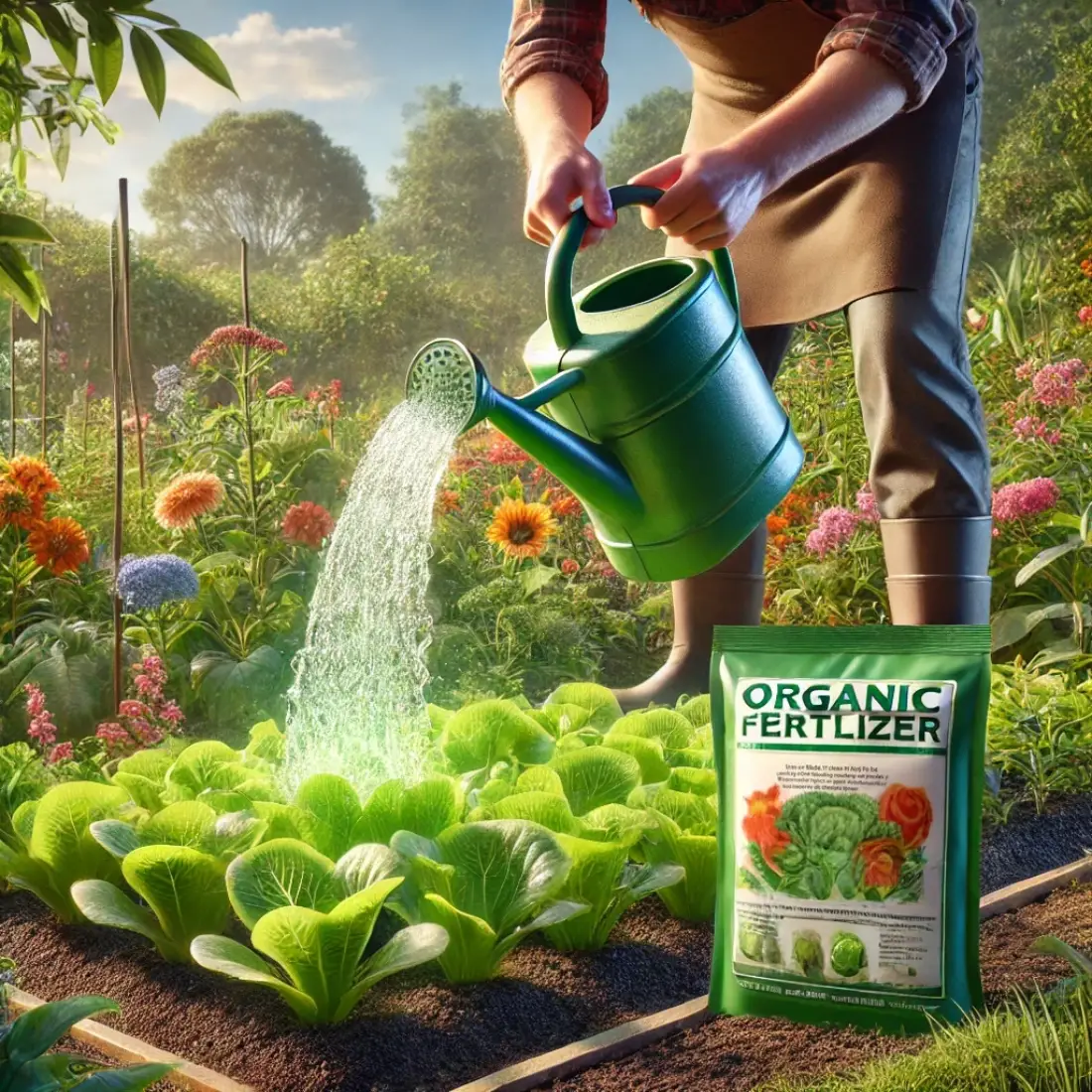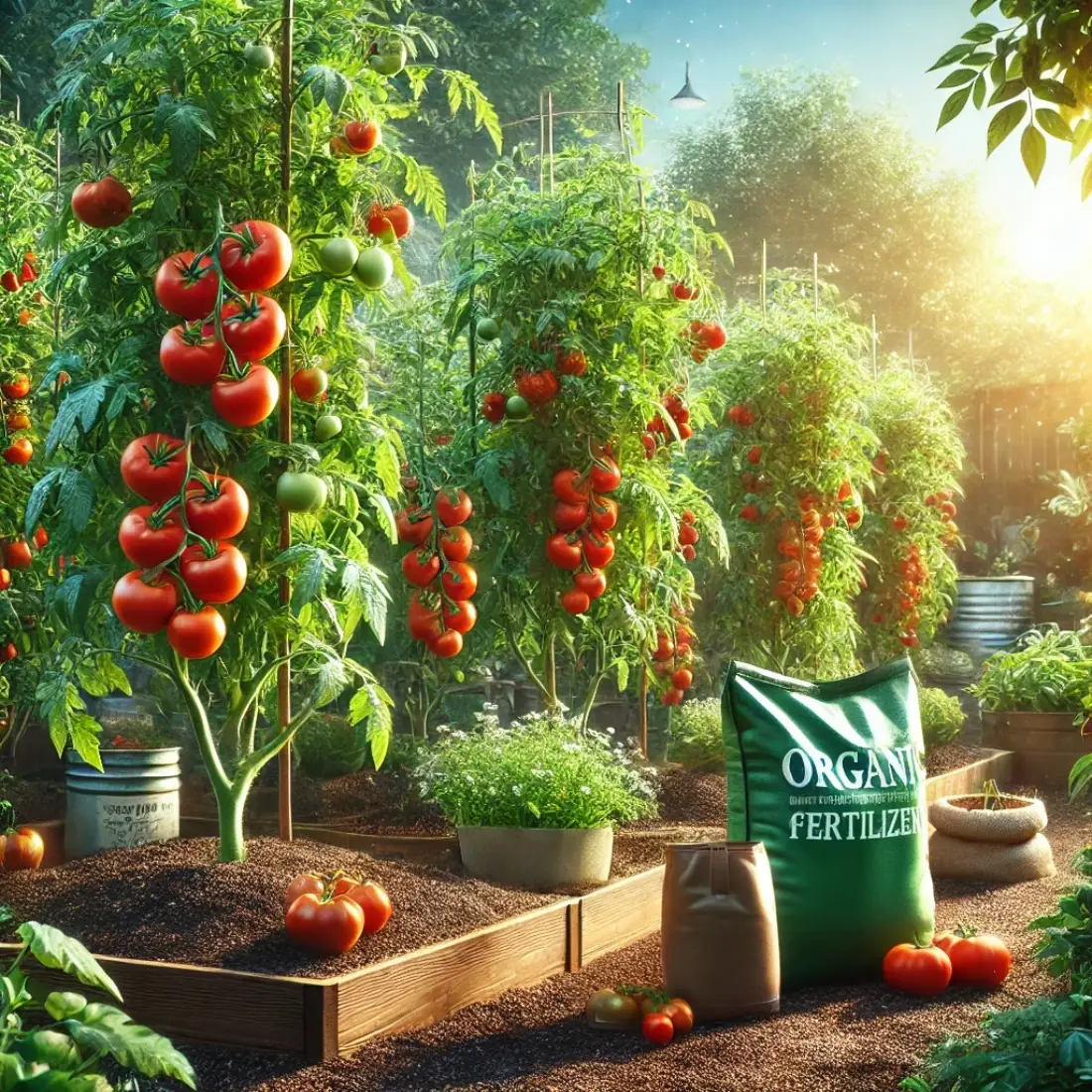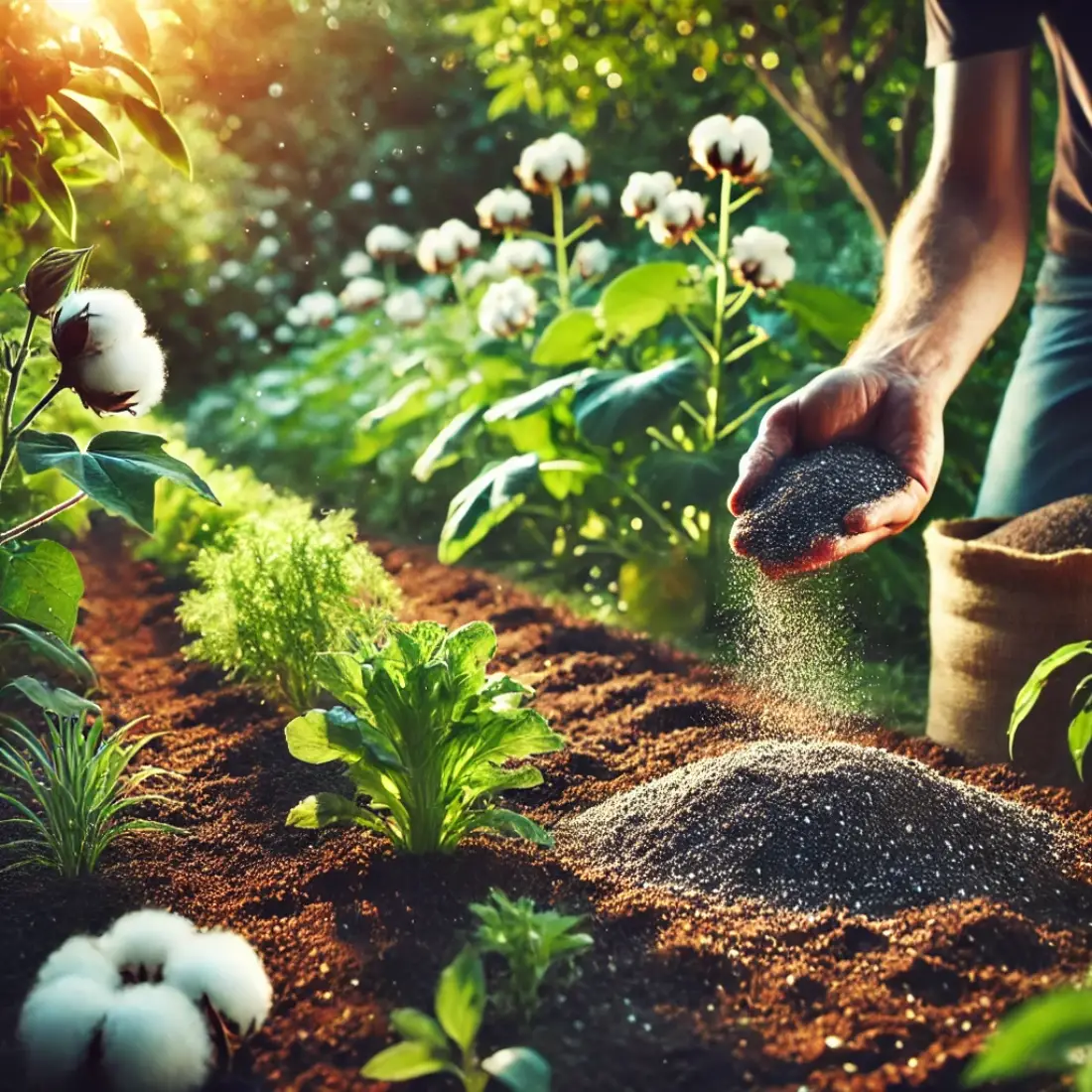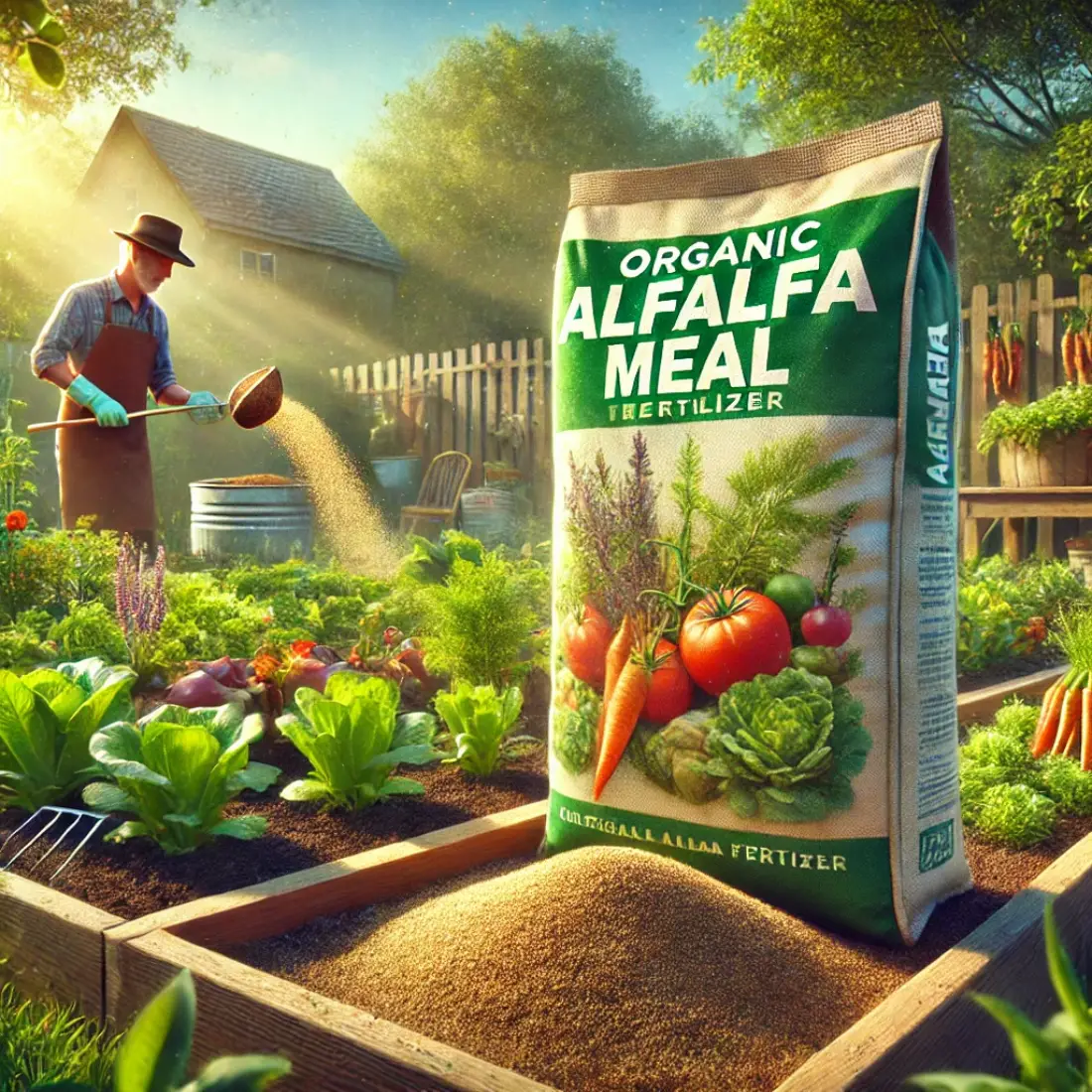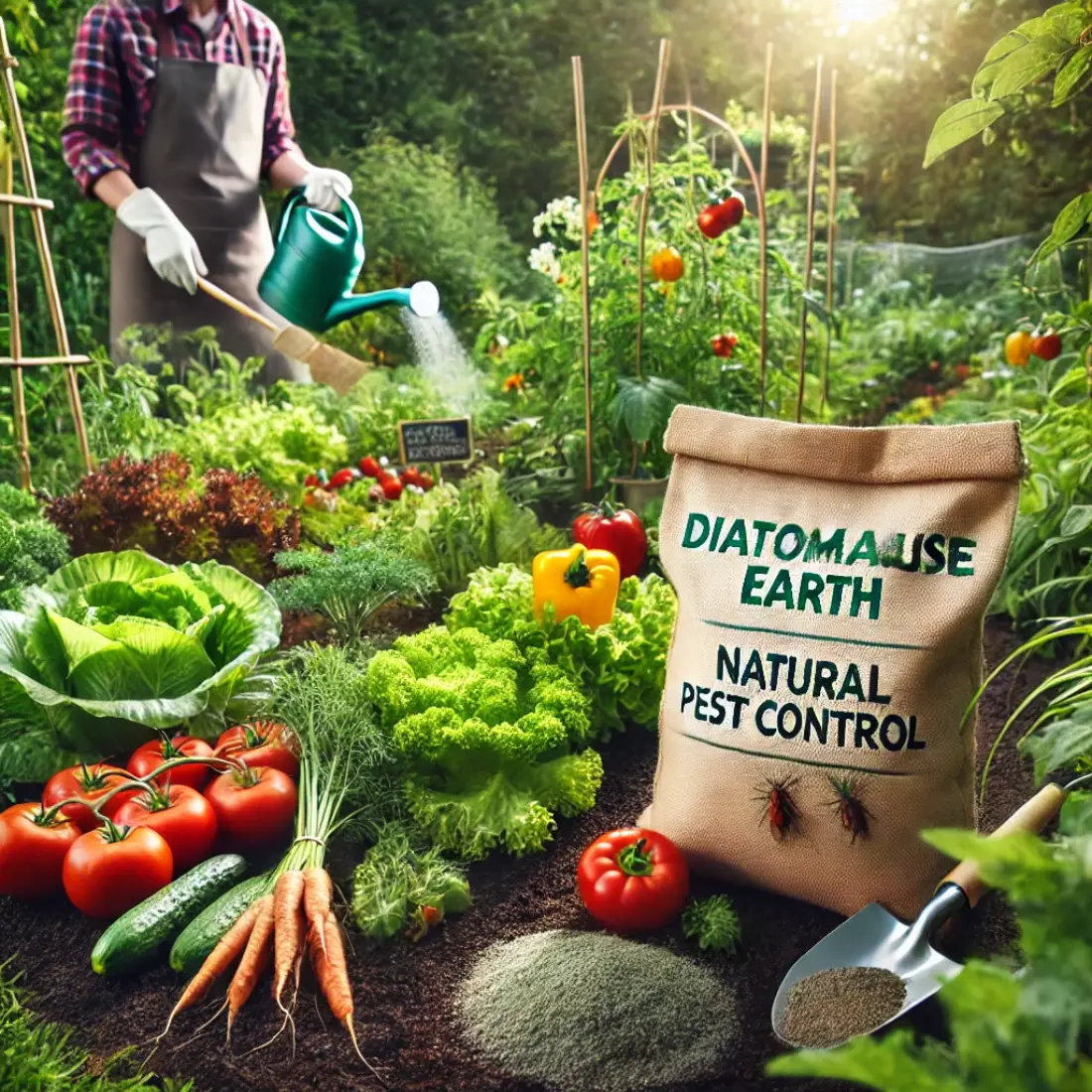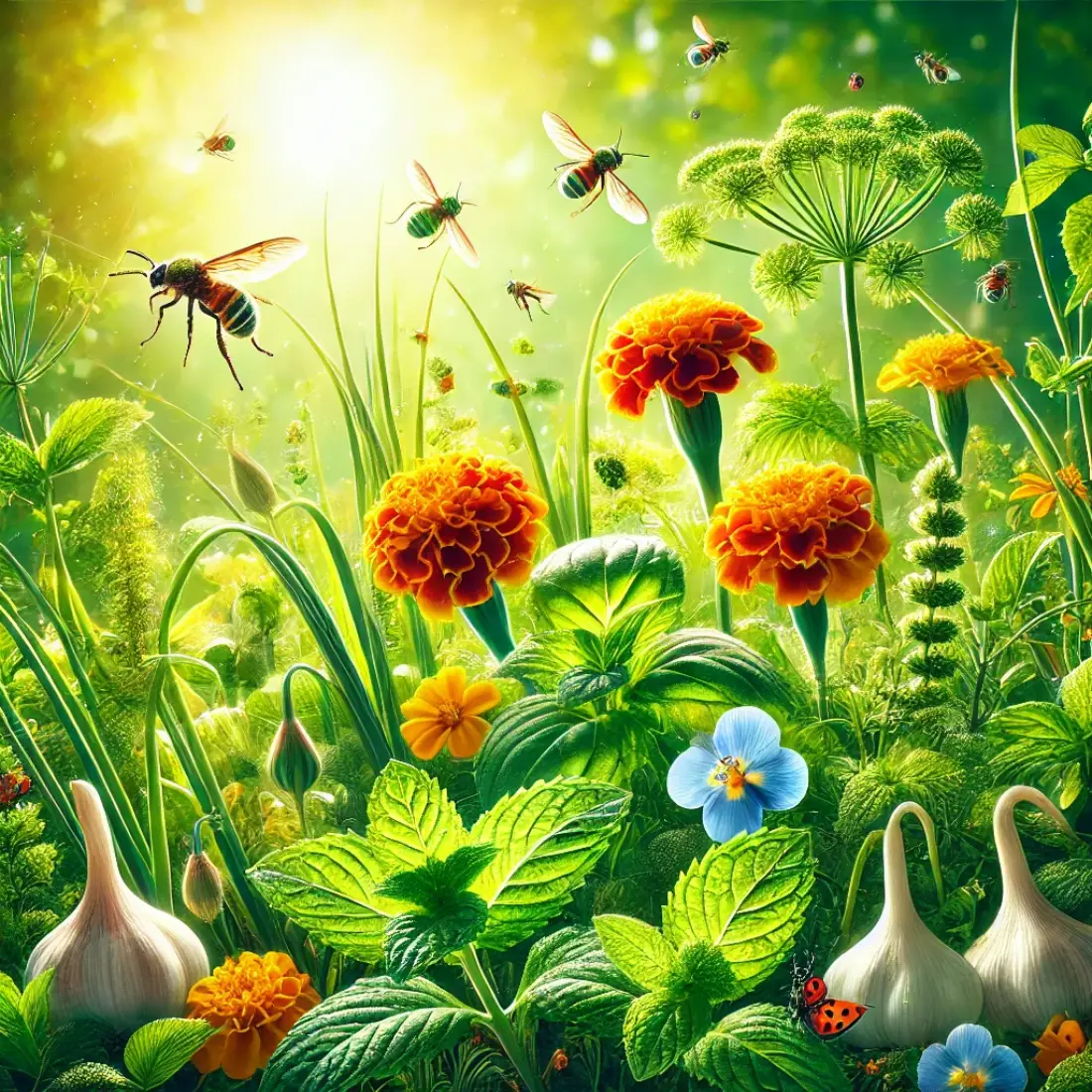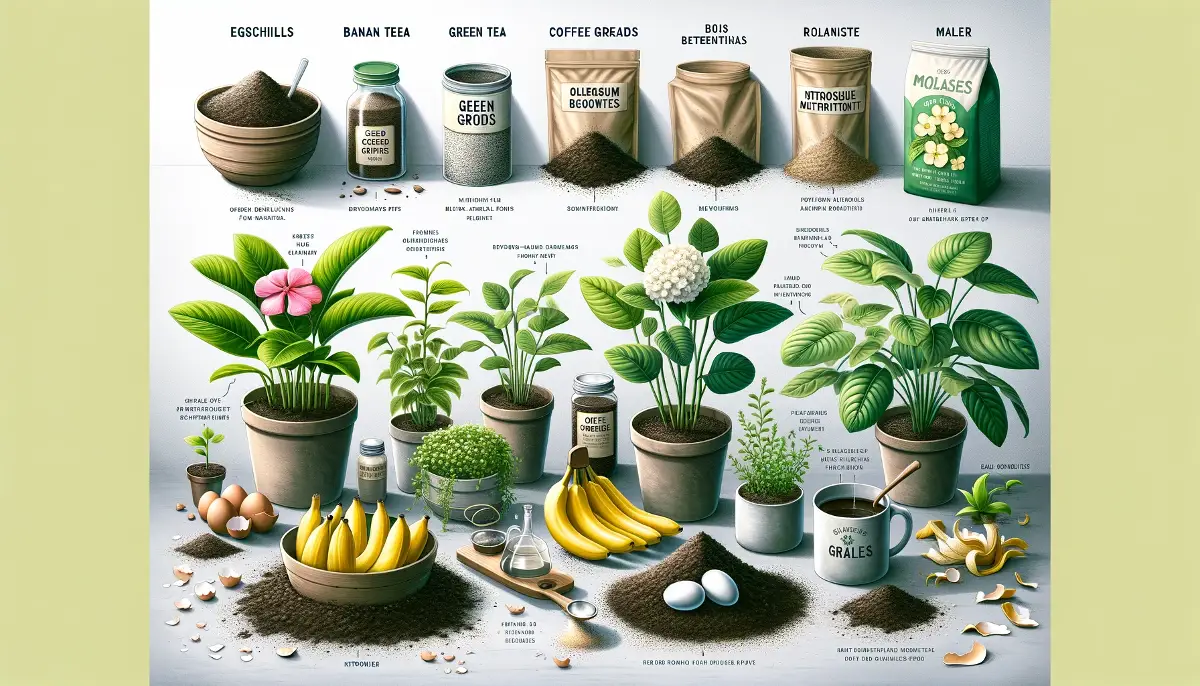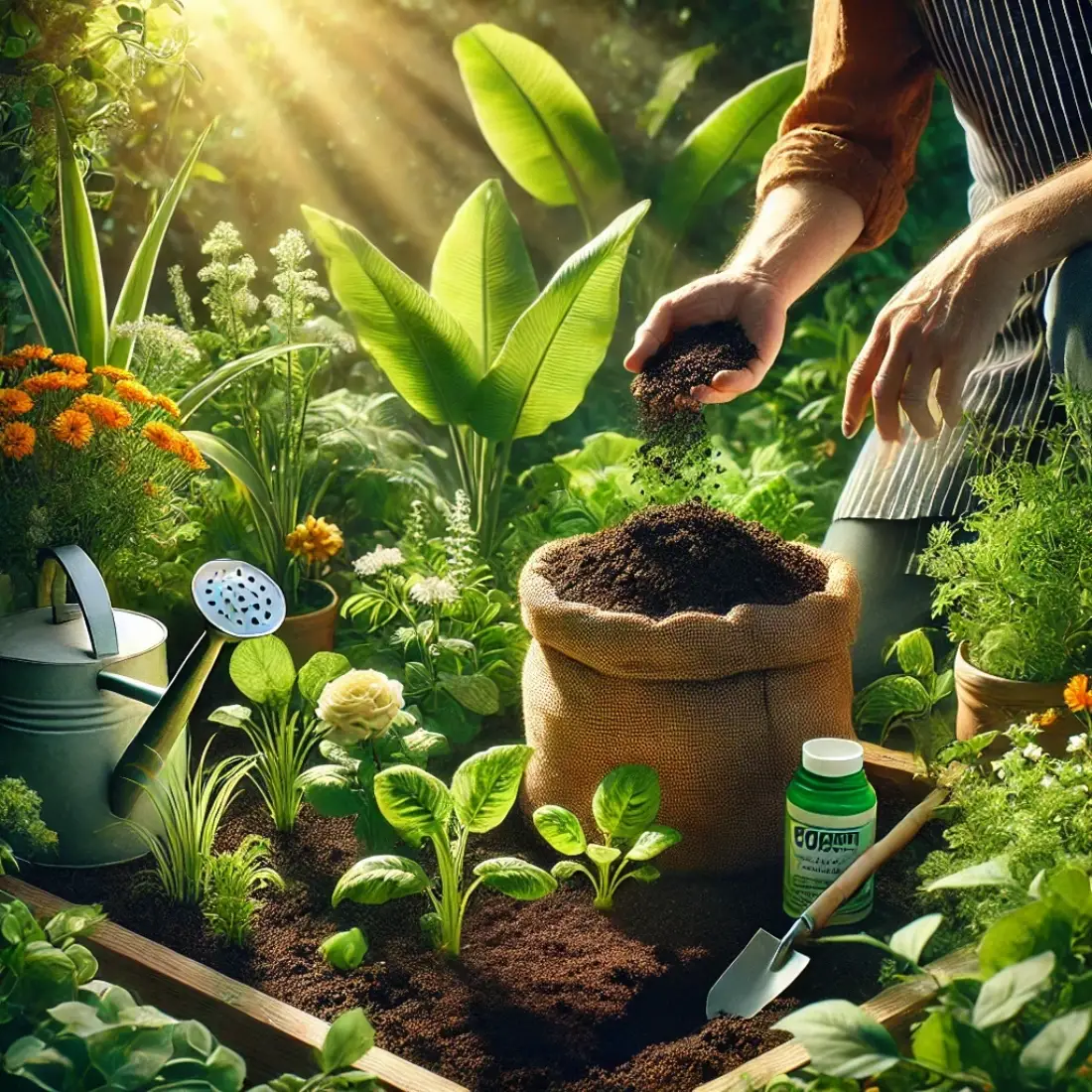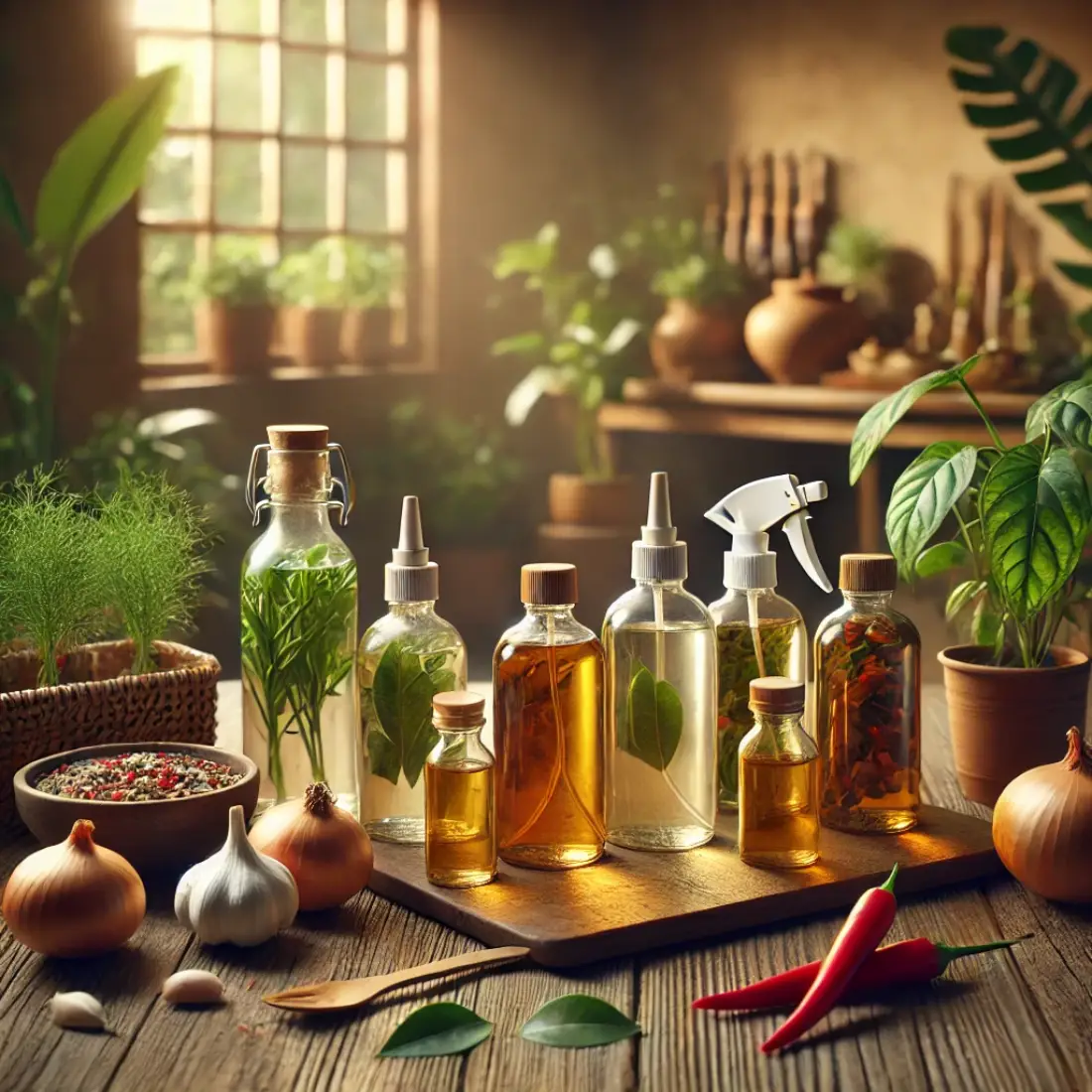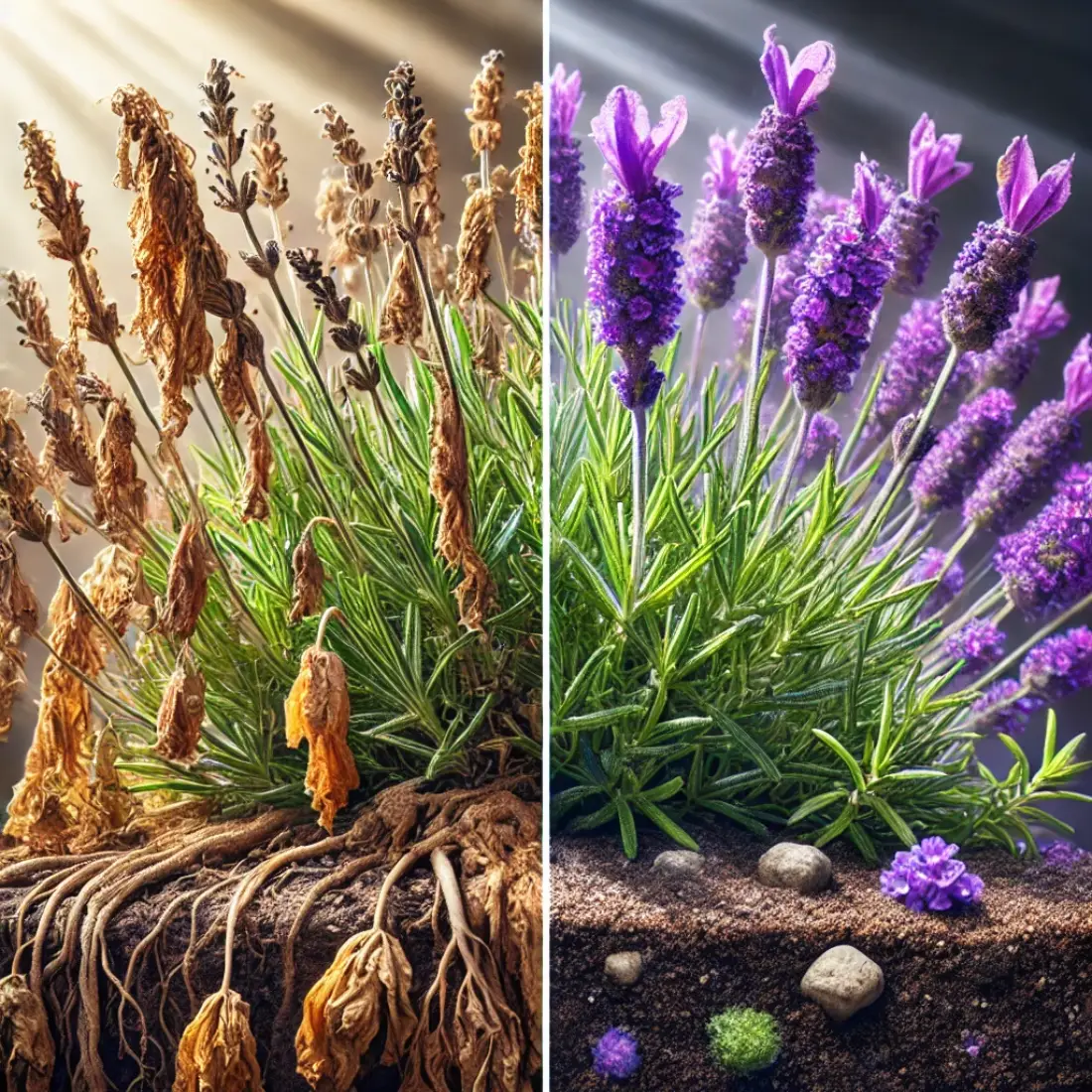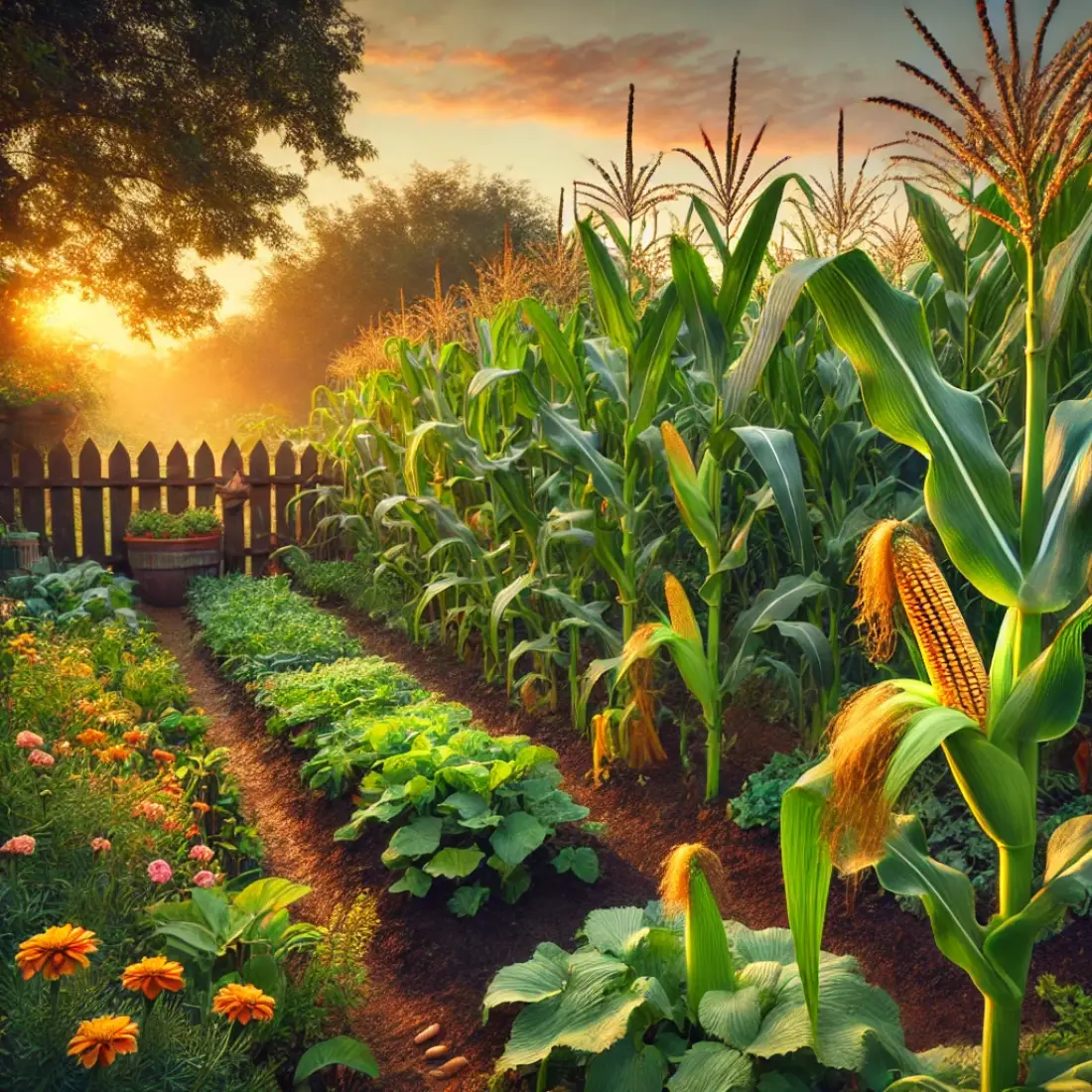Gelatin powder is a natural, nitrogen-rich fertilizer derived from animal collagen. Made by boiling animal bones and skins, it provides essential nutrients to plants, promoting vigorous leaf and stem growth. Historically linked to traditional animal by-product fertilizers, gelatin powder offers a modern, easy-to-use alternative.
It stands out for its high nitrogen content, eco-friendliness, and cost-effectiveness. Unlike bulky compost or manure, gelatin powder is lightweight and can be quickly mixed into the soil or dissolved in water for immediate application, ensuring a steady nutrient supply for healthier plants.
- Rich Source of Nitrogen: Gelatin powder is packed with nitrogen, an essential nutrient that promotes vigorous leaf and stem growth in plants.
- Improves Soil Structure: Using gelatin powder helps enhance soil aeration and water retention, leading to healthier root systems and more robust plant growth.
- Eco-Friendly and Sustainable: As a natural and organic fertilizer, gelatin powder reduces the environmental impact compared to synthetic fertilizers, supporting sustainable gardening practices.
- Cost-Effective: Gelatin powder is an affordable alternative to chemical fertilizers, making it accessible for gardeners with varying budgets.
- Versatile Use: Ideal for both indoor and outdoor plants, gelatin powder can be used in a wide range of gardening applications, from houseplants to vegetable gardens.
- Easy Application: Simple to prepare and apply, gelatin powder fertilizer fits seamlessly into any gardening routine, requiring minimal effort for maximum benefits.
How to Apply Gelatin Powder Fertilizer
Using gelatin powder fertilizer is a straightforward and effective way to boost your plants growth. Follow these simple steps to ensure optimal results:
Prepare the Gelatin Solution:
- Dissolve 1 tablespoon of gelatin powder in 1 cup of hot water.
- Stir until the gelatin is completely dissolved.
- Add 3 cups of cold water to the mixture, making a total of 4 cups of solution.
For Indoor Plants:
- Pour the gelatin solution directly onto the soil around your indoor plants.
- Use once a month for best results.
For Outdoor Plants:
- Apply the solution evenly around the base of the plants.
- Water the plants after applying to help distribute the nutrients.
- Use it once every two weeks during the growing season.
Dosage Recommendations
- Seedlings and Small Plants: Use 1/4 cup of the gelatin solution per plant.
- Medium-Sized Plants: Use 1/2 cup per plant.
- Large Plants and Shrubs: Use 1 cup per plant.
Frequency of Application
- Indoor Plants: Once a month.
- Outdoor Plants: Every two weeks during the growing season.
Tips for Best Results
- Avoid Over-Fertilization: Watch for signs of over-fertilization such as yellowing leaves or stunted growth. If you notice these signs, reduce the frequency of gelatin powder application and increase watering to help leach excess nutrients from the soil.
- Combine with Other Organic Fertilizers: Enhance results by using gelatin powder alongside compost or other organic fertilizers.
- Store Properly: Keep the gelatin powder in a cool, dry place to maintain its effectiveness. Prepare the gelatin solution fresh each time you fertilize for the best results.
Applying gelatin powder fertilizer correctly can lead to healthier, more vibrant plants, whether indoors or in your garden.
Plants That Love Gelatin Powder Fertilizer
Gelatin powder fertilizer is particularly beneficial for plants that thrive on nitrogen-rich soil. These include:
- Leafy Greens: Lettuce, spinach, kale, and Swiss chard
- Vegetables: Tomatoes, peppers, cucumbers, and beans
- Flowering Plants: Roses, hibiscus, and marigolds
- Houseplants: Pothos, philodendrons, and spider plants
- Herbs: Basil, mint, parsley, and cilantro
Potential Drawbacks and Considerations
While gelatin powder fertilizer offers many benefits, there are also potential drawbacks and considerations to keep in mind to ensure its effective and safe use in your garden.
Possible Downsides
Attracting Pests:
- Gelatin, being animal-based, can attract pests such as rodents and insects.
- To mitigate this, apply the fertilizer in the evening or early morning when pest activity is lower, and ensure it is well-mixed into the soil.
Odor Issues:
- Gelatin powder can produce an unpleasant odor, especially in warm conditions.
- This can be minimized by applying it in well-ventilated areas and ensuring it is adequately diluted.
Over-Fertilization Risk:
- Excessive use of gelatin powder can lead to nitrogen burn, characterized by yellowing leaves and stunted growth.
- Always follow recommended dosage guidelines and monitor plant health regularly.
Limited Nutrient Spectrum:
- Gelatin powder is primarily a source of nitrogen and lacks other essential nutrients like phosphorus and potassium.
- Use in combination with a balanced organic fertilizer to provide a full spectrum of nutrients.
Addressing Common Concerns and Misconceptions
While many plants benefit from the nitrogen in gelatin powder, some, like root vegetables (e.g., carrots, beets), may not require high nitrogen levels. Use cautiously with these plants.
Being a natural product, gelatin powder is unlikely to contaminate soil. However, overuse can lead to an imbalance in soil nutrients.
Ensure proper ventilation to avoid odor buildup and potential pest attraction. Indoor application should be less frequent and more carefully monitored.
Considerations for Effective Use
Seasonal Use: Use gelatin powder primarily during the growing season when plants are actively taking up nutrients. Reduce or cease application during dormant periods.
Compatibility with Other Fertilizers: Gelatin powder can be effectively combined with other organic fertilizers. However, avoid using it with chemical fertilizers to prevent nutrient imbalances.
Soil Testing: Conduct regular soil tests to monitor nutrient levels and adjust your fertilization strategy accordingly. This helps prevent over-fertilization and ensures balanced soil health.
FAQs about Gelatin Powder
How does gelatin powder fertilizer compare to traditional fertilizers?
Gelatin powder fertilizer is a natural, nitrogen-rich alternative to traditional chemical fertilizers. It provides a steady release of nitrogen, improving soil structure and promoting healthy plant growth without the harmful environmental impacts of synthetic fertilizers.
Is gelatin powder fertilizer safe for all types of plants?
While gelatin powder fertilizer is generally safe for most plants, it is particularly beneficial for leafy greens, vegetables, flowering plants, houseplants, and herbs. However, use it cautiously with root vegetables like carrots and beets, which require less nitrogen.
How often should I apply gelatin powder fertilizer?
For outdoor plants, apply the gelatin solution every two weeks during the growing season. For indoor plants, once a month is sufficient. Always monitor your plants and adjust the frequency based on their health and growth.
Can gelatin powder attract pests or animals?
Yes, gelatin powder can attract pests such as rodents and insects due to its animal-based origin. To minimize this risk, apply the fertilizer in the evening or early morning and ensure it is well-mixed into the soil.
Will gelatin powder fertilizer produce an odor?
Gelatin powder can produce an unpleasant odor, especially in warm conditions. To mitigate this, apply it in well-ventilated areas and ensure it is adequately diluted before use.
How long does it take to see results from using gelatin powder fertilizer?
Plants typically show improved growth and vigor within a few weeks of regular gelatin powder fertilizer application. Leafy greens and fast-growing vegetables may exhibit noticeable changes sooner.
Can I use gelatin powder fertilizer with other fertilizers?
Yes, gelatin powder can be used alongside other organic fertilizers to provide a balanced nutrient profile. Avoid mixing it with chemical fertilizers to prevent nutrient imbalances.
Is gelatin powder fertilizer eco-friendly?
Yes, gelatin powder fertilizer is eco-friendly. It is derived from natural animal by-products and helps reduce the reliance on synthetic fertilizers, thus minimizing environmental impact.
How do I store gelatin powder fertilizer?
Store gelatin powder in a cool, dry place to prevent clumping and degradation. Always use a fresh solution each time you fertilize for the best results.
Where can I purchase high-quality gelatin powder for gardening?
High-quality gelatin powder can be purchased at garden supply stores, online retailers, and some health food stores. Ensure the product is food-grade and free from additives for the best gardening results.

